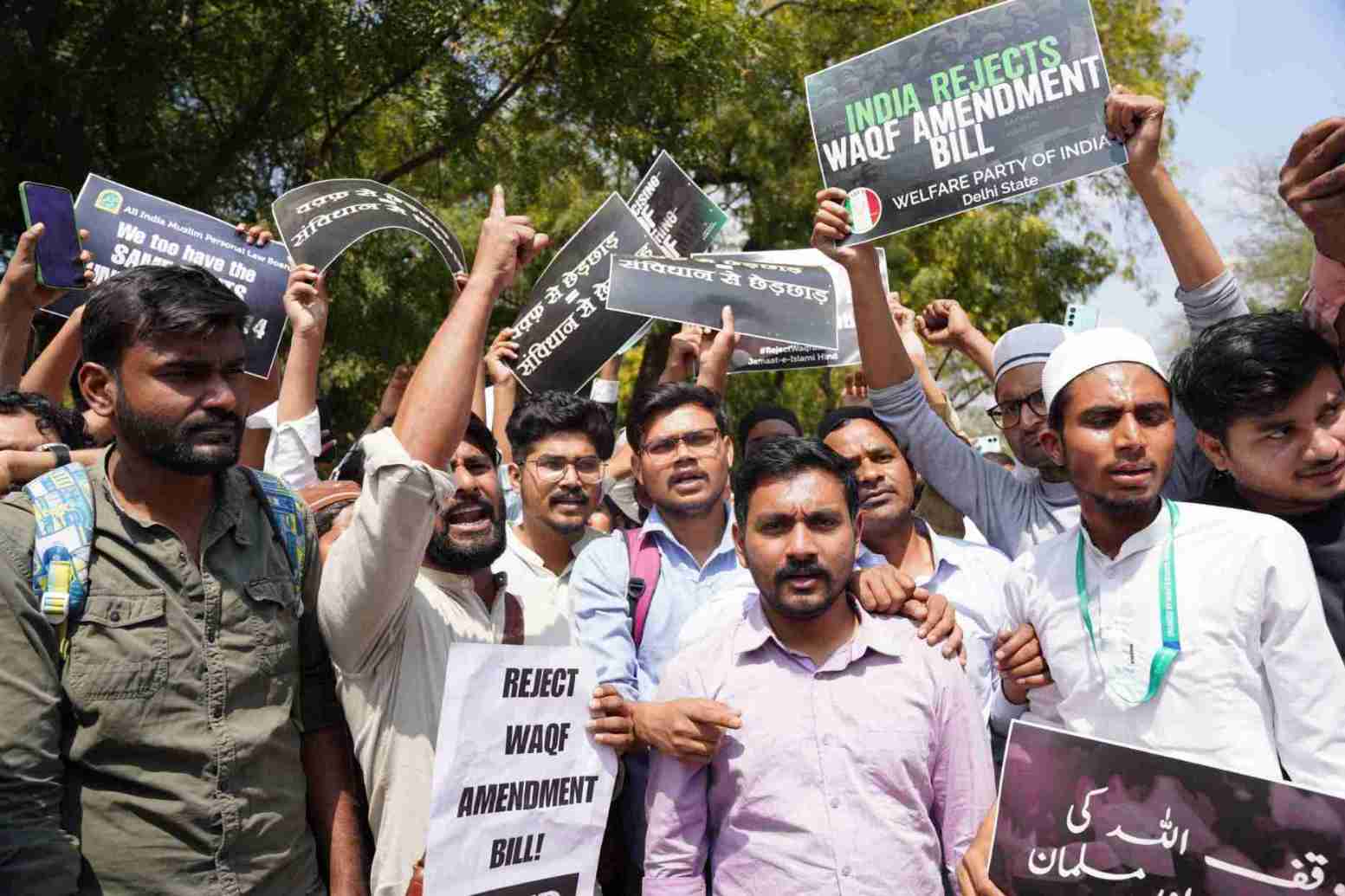Syed Azharuddin
The recently passed Waqf Amendment Act 2025 has triggered a wave of protests and constitutional scrutiny across the country. Far from being a neutral reform, the law strikes at the heart of India’s pluralistic fabric and undermines the fundamental rights guaranteed to religious minorities. While the Supreme Court’s interim order has offered temporary relief by staying some of its most egregious provisions, the Act in its entirety remains a troubling blueprint for state overreach into religious affairs.
At its core, the amendment dramatically expands government control over Waqf properties—endowments created for religious, charitable, and community purposes within the Muslim community. By empowering revenue officers and government-designated officials to treat Waqf land as state property even before judicial determination, the law violates the basic principle of separation of powers. The Supreme Court rightly suspended these provisions, recognising that such sweeping authority cannot rest with the executive. Allowing bureaucrats to bypass courts not only erodes due process but also opens the door to arbitrary dispossession and political misuse.
Equally troubling is the now-stayed clause that required individuals to prove five years of Islamic practice before creating a Waqf. Such a requirement is not only discriminatory but constitutionally indefensible. Religious endowments across India—whether Hindu, Sikh, or Christian—face no such intrusive tests of faith. That the government sought to impose this burden exclusively on Muslims reveals the Act’s sectarian intent.
The amendment also seeks to abolish the long-standing principle of “Waqf by user,” a provision that protects mosques, graveyards, and Eidgahs that have existed for centuries without formal documentation. In a country where countless religious sites of every faith predate modern record-keeping, dismantling this principle endangers thousands of historic institutions. Temples and other places of worship often rely on similar customary recognition, yet no parallel restrictions have been proposed for them.
Another contentious aspect is the inclusion of non-Muslim members in Waqf Boards and the Central Waqf Council. Proponents argue this would ensure administrative efficiency and transparency, but the implication is deeply problematic. It suggests that Muslims alone are incapable of managing their religious endowments, an assumption steeped in mistrust. Comparable Hindu and Sikh endowments remain under the exclusive oversight of their respective communities, highlighting a glaring double standard.
Even the deadlines for registering Waqf properties—already stayed by the Court—are impractical. India’s vast rural landscape is dotted with centuries-old endowments lacking formal deeds or clear ownership records. Forcing them into a rushed registration process invites harassment, bureaucratic exploitation, and large-scale exclusion of genuine Waqfs.
The political context of the law’s passage underscores its partisan nature. The Act scraped through Parliament by a narrow margin, with significant opposition both inside and outside the legislature. That it was advanced by a government with no Muslim representation in the Lok Sabha only deepens the perception of a majoritarian agenda. While advocates claimed the amendments were necessary to curb mismanagement and corruption, the Act offers no concrete mechanisms to address these issues. Historically, political and bureaucratic interference—not community self-governance—has been the main source of mismanagement in Waqf affairs.
The Supreme Court’s interim order—halting executive seizures, suspending the five-year faith requirement, and protecting disputed properties—has exposed the constitutional fragility of this legislation. Yet critical issues remain unresolved. The threat to “Waqf by user,” the insistence on non-Muslim membership, and the broader framework of state intrusion continue to loom large.
India’s Constitution guarantees religious minorities the right to manage their own institutions under Articles 25, 26, and 29. The Waqf Amendment Act offends these guarantees by subjecting Muslim endowments to controls not applied to other communities. This selective intrusion sets a dangerous precedent: if the state can dictate the internal management of one religious group’s endowments, no community is truly secure.
The struggle over this law is far from finished. The final judgment of the Supreme Court will determine whether constitutional principles prevail over political expediency. But the broader question is one of national ethos. Will India remain a republic where all faiths enjoy equal protection and autonomy, or will it drift toward a system where the majority’s will defines the limits of minority rights?
The answer must be clear. Laws that erode constitutional freedoms, however cleverly justified, cannot stand. The Waqf Amendment Act 2025 deserves not mere amendment but outright repeal. Anything less would leave a lasting stain on the promise of justice, liberty, and equality that defines the Indian Constitution.
Syed Azharuddin is a writer, consultant, and activist who amplifies the unheard voices of marginalized communities. His work explores themes of justice, youth empowerment, education, and socio-political change. With a deep commitment to human dignity and truth, he uses research and storytelling as tools to challenge dominant narratives and advocate for a more compassionate and inclusive world. Email: logonazhar@gmail.com
The views expressed in this article are author’s own and do not necessarily reflect the policy of the platform.





























































